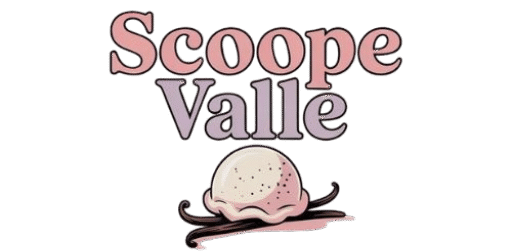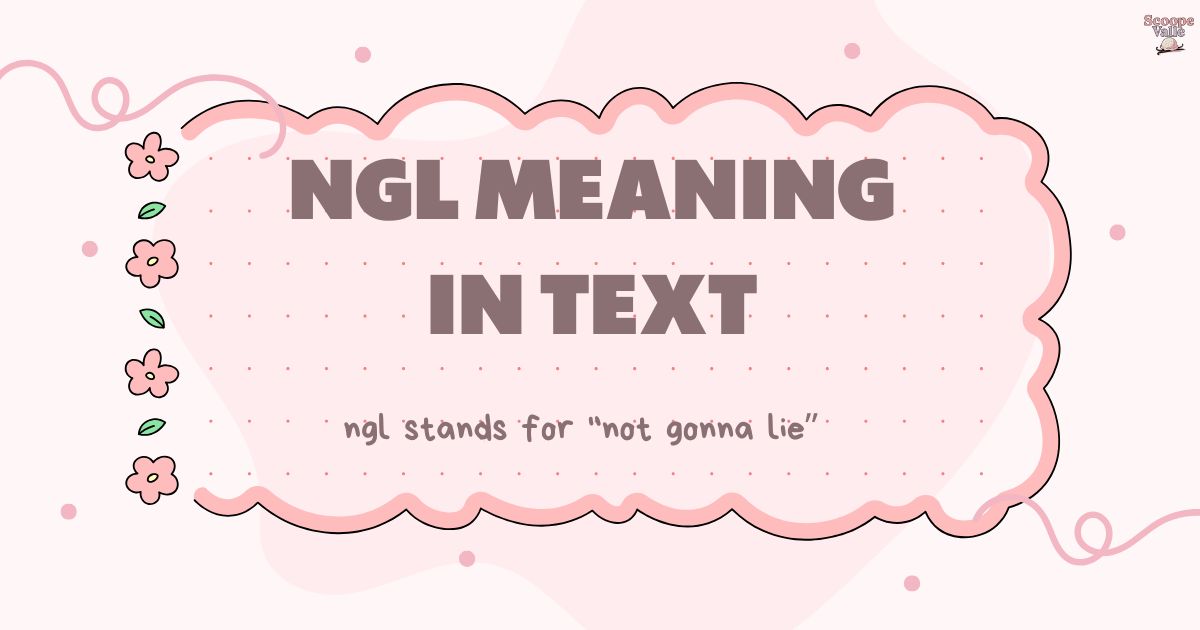In today’s world, digital communication has taken over traditional forms of conversation. Whether you are texting with friends, scrolling through your social media feed, or even playing an online game, you have probably come across the term “ngl.” But, what does “ngl” actually mean? Why has it become so popular? Let’s dive into this abbreviation and explore its usage, meaning, and history.
What Does ngl Mean?
The abbreviation ngl stands for “not gonna lie.” It’s a casual and informal phrase often used in digital communication to preface an honest opinion or admission. It allows the speaker to say something candidly, whether positive, neutral, or negative, without seeming too harsh or overly blunt.
Essentially, when someone says “ngl,” they are signaling that they are about to share a truthful thought, opinion, or observation, sometimes one that may surprise the listener or reader. It’s a way to express authenticity in conversation.
For example:
“Ngl, I didn’t think I’d like the movie, but it was actually great!”
“Ngl, I’m really nervous about the presentation tomorrow.”
The use of “ngl” is widely spread across texting, social media, gaming, and sometimes even professional chats.
Also read: SU Meaning in Text: Your Ultimate Guide to This Handy Acronym
Real-Life Examples
Here are some real-life examples where you might see ngl used
Texting
Friend 1: “How’s the new restaurant you went to last night?”
Friend 2: “Ngl, it wasn’t as great as I thought it would be. The food was okay, but the service was slow.”
Social Media
User’s Instagram Story: “Ngl, this sunset looks like it’s straight out of a painting. 🌅 #nofilter”
Gaming
Player 1: “I think I might have won the round for us.”
Player 2: “Ngl, you did an amazing job carrying us!”
Professional Setting
Colleague 1: “The deadline for the report is tomorrow, is it ready?”
Colleague 2: “Ngl, I still have some work left to do, but I’ll finish it in time.”
The Origins and Evolution of ngL
The term ngl first emerged during the rise of texting and online communication, which began to flourish in the early 2000s. Back then, people started using abbreviations to save time while typing on their phones, especially on platforms like AIM (AOL Instant Messenger) and MSN Messenger. With the growing popularity of texting, abbreviations like “lol,” “brb,” and “omg” were born, and “ngl” followed soon after.
Initially, it was used mainly in casual texting between friends and in forums, but as social media platforms grew, so did the reach of “ngl.” Websites like Twitter, Facebook, and Instagram made it even easier to use such abbreviations, and over time, ngl became a staple of online communication.
Today, ngl is recognized worldwide, especially among younger generations like Gen Z and Millennials. It has become more than just a texting shorthand—it’s now part of internet slang and is widely used across various forms of digital communication.
How ngl Is Used in Different Contexts
One of the most interesting things about ngl is its versatility. You can use it in a variety of situations, from casual conversations to even a bit of professional communication. Let’s explore the different contexts where ngl is commonly used:
Texting
In personal texts, ngl is typically used when someone wants to share an honest opinion or admission. It often softens the delivery of the message, so it doesn’t come across as too blunt or rude.
Example:
Person A: “Ngl, I don’t like the new song they released.”
Person B: “Really? I love it, but I guess it’s not for everyone.”
Social Media
On platforms like Twitter, Instagram, or TikTok, people often use ngl when commenting on posts or sharing thoughts about a piece of content. Whether it’s about a celebrity, a movie, or even a random meme, ngl gives the commenter a chance to voice their opinions honestly.
Example:
“Ngl, this recipe looks like the best thing I’ve seen all day! I’m trying it tonight.”
Gaming
In the gaming world, ngl is commonly used to express surprise, acknowledge someone’s skill, or admit when things don’t go according to plan. It’s often a lighthearted way to share an opinion or admit mistakes.
Example:
Player A: “Ngl, I didn’t expect us to win that match!”
Player B: “Same here! That was a close one!”
Professional Settings
While not as common in professional settings, ngl may still appear in informal work-related chats. In such cases, people might use it to honestly express how they feel about a project or work-related task, especially if the environment is casual.
Example:
Colleague 1: “Ngl, I think this project is taking longer than expected.”
Colleague 2: “Yeah, we might need to adjust our timeline.”
Common Misconceptions About ngl
While ngl is a widely recognized term, there are a few misconceptions surrounding its usage. Let’s clarify them:
It’s Always Negative
One of the biggest misconceptions about ngl is that it’s always used for negative comments. While ngl is often used when sharing something less-than-ideal, it can also be used in positive or neutral contexts.
Example:
“Ngl, this new movie was fantastic!” (positive)
It’s a Form of Sarcasm
Some people assume that ngl is synonymous with sarcasm, but it’s not always the case. The phrase simply indicates honesty, and in many cases, it’s said earnestly.
Example:
“Ngl, I love how much energy she brings to the team!” (sincere)
It’s Only for Young People
While ngl is especially popular among younger generations, it’s becoming more common across all age groups, particularly with the influence of social media.
Similar Terms and Alternatives
There are a few terms that are often used interchangeably with ngl. While they may carry similar meanings, there are slight differences in tone or intent.
| Term | Meaning | Tone |
| ngl | Not gonna lie | Neutral, honest |
| tbh | To be honest | Neutral, reflective |
| idgaf | I don’t give a f*** | Aggressive, dismissive |
| imo | In my opinion | Neutral, subjective |
How to Respond to ngl
When someone uses ngl in a conversation, your response will depend on the context. Here are some examples of how to reply:
Casual Response:
Person A: “Ngl, I think that movie was overrated.”
Person B: “I get that! It wasn’t my favorite either.”
Funny Response:
Person A: “Ngl, I ate the last slice of pizza.”
Person B: “Ngl, I was hoping you would!”
Professional Response:
Person A: “Ngl, I thought the meeting was going to run longer.”
Person B: “Yeah, it was a good surprise when we finished early!”
Regional and Cultural Differences
While ngl is predominantly used in English-speaking countries, it may not always translate easily into other languages or cultures. In some cultures, being straightforward or too honest might be frowned upon, and phrases like ngl may not carry the same weight.
For example, in some cultures, indirectness is valued in communication, and being too honest could come across as rude or inappropriate. It’s essential to be mindful of these differences when using ngl in cross-cultural conversations.
Is ngl Offensive?
No, ngl is generally not offensive. It’s simply a casual abbreviation to express honesty, whether in a positive, negative, or neutral tone. However, how it’s used and the context in which it’s said can influence how it’s received. In most cases, it’s seen as a way to soften blunt honesty.
Is ngl Suitable for Professional Communication?
Ngl is typically not used in formal or corporate communication, especially in highly professional settings. However, in casual work chats, such as within teams or among colleagues in a relaxed environment, it can be used to express honest opinions about a project or task. Still, it’s best to keep things more formal in professional emails or meetings.
FAQ’s
Is ngl only used in text messages?
No, while it started in texting, ngl is now used on social media platforms, in gaming chats, and even in some professional environments.
Can ngl be used in a formal setting?
It’s generally not suitable for formal communication. It’s best reserved for casual and informal conversations.
What other abbreviations are similar to ngl?
Similar abbreviations include tbh (to be honest), imo (in my opinion), and idgaf (I don’t give a f***).
Conclusion
Ngl is a handy abbreviation that has become a regular part of digital communication. It’s used to express honesty and share opinions, whether they are positive, negative, or neutral. While ngl is widely popular, it’s essential to understand the context and tone in which it’s used, especially in professional settings. So next time you want to be candid with someone, just use ngl, and you’ll be speaking the digital language fluently!
Tylor John, with five years’ experience, beautifully crafts information on all topics and inspiring readers worldwide with positivity, faith, creativity, love, and hope.

